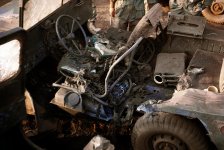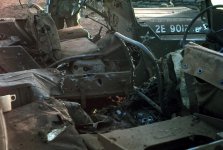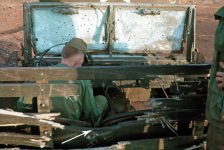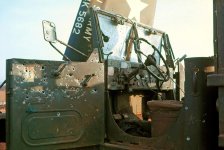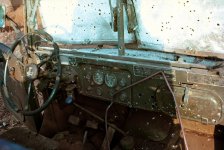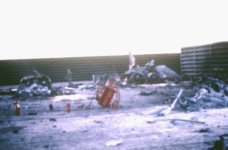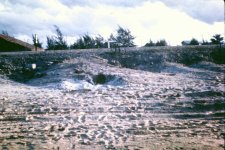life goes on...
I was (and am) a Board Certified Pediatrician, and later in my army career a Flight Surgeon. After my pediatric residency in Denver, I spent two years in a postdoctoral fellowship in Nephrology, so had more than a causal interest in fluid and electrolytes.
One day, a small child, perhaps 6 or 8 months old was flown in. I just don't recall if his mother came in too. But this child was profoundly dehydrated, so I put in a tibial interosseous infusion needle, and tried for several days to gently restore without any labs to guide me, perfusion of his vital organs and especially his brain. About the third day, despite our efforts, and the tender and loving care of our nurses, I found no cerebral responses, nor any other signs of a returning cerebral function, so after asking his nursing team if they wished to continue our futile resuscitation, I discontinued his infusion and care, and asked our transfer team to find a place for the child to go to.
Our hospital staff, and indeed all of our troops knew about our little Iraqui infant and his desperate and fragile state, and when word traveled that he had died, I could sense a feeling of loss, esp in our nursing team.
But several hours later, an Iraqi mother arrived, and was in state of a failed labor. She promptly went into one of our OR's, and a general surgeon delivered a healthy newborn. It helped to lift our spirits.
Like in other memories, I wonder if this now 30 year old person (I can't recall if the infant was male or female) feels any appreciation for a distant nation who saved his life, and his mothers too.
As I have said so many times in this thread, it was as if we told every incoming patient "..., don't worry we got this."
All the best.. NAM VET

I was (and am) a Board Certified Pediatrician, and later in my army career a Flight Surgeon. After my pediatric residency in Denver, I spent two years in a postdoctoral fellowship in Nephrology, so had more than a causal interest in fluid and electrolytes.
One day, a small child, perhaps 6 or 8 months old was flown in. I just don't recall if his mother came in too. But this child was profoundly dehydrated, so I put in a tibial interosseous infusion needle, and tried for several days to gently restore without any labs to guide me, perfusion of his vital organs and especially his brain. About the third day, despite our efforts, and the tender and loving care of our nurses, I found no cerebral responses, nor any other signs of a returning cerebral function, so after asking his nursing team if they wished to continue our futile resuscitation, I discontinued his infusion and care, and asked our transfer team to find a place for the child to go to.
Our hospital staff, and indeed all of our troops knew about our little Iraqui infant and his desperate and fragile state, and when word traveled that he had died, I could sense a feeling of loss, esp in our nursing team.
But several hours later, an Iraqi mother arrived, and was in state of a failed labor. She promptly went into one of our OR's, and a general surgeon delivered a healthy newborn. It helped to lift our spirits.
Like in other memories, I wonder if this now 30 year old person (I can't recall if the infant was male or female) feels any appreciation for a distant nation who saved his life, and his mothers too.
As I have said so many times in this thread, it was as if we told every incoming patient "..., don't worry we got this."
All the best.. NAM VET



